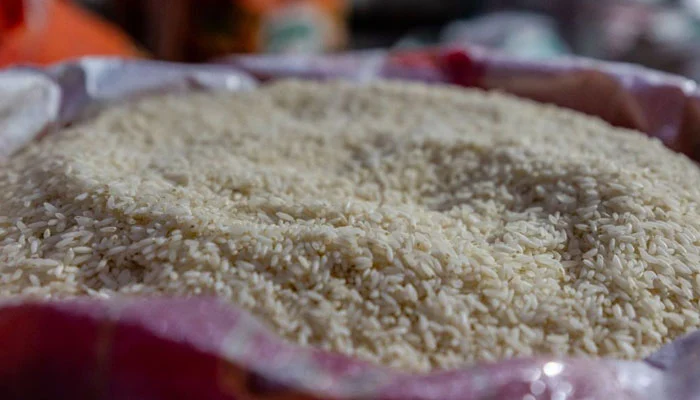Tags
Pakistan pledges swift action as EU flags contaminated rice shipments
“We cannot afford to let such lapses continue, given the importance of rice exports to our economy,” says official.
By Israr Khan

ISLAMABAD: The Pakistan government has vowed swift action to address growing challenges faced by rice exporters following the interception of contaminated shipments in the European Union (EU), a development that threatens the country’s reputation and access to key international markets.
The Ministry of National Food Security and Research (MNFS&R) is under pressure to resolve delays in the issuance of Phytosanitary Certificates, a critical requirement for agricultural exports. Officials warn that any lapse in meeting international food safety and phytosanitary standards could result in stricter trade barriers or outright bans, jeopardizing Pakistan’s economy.
Rice exports are a critical source of foreign exchange for Pakistan, particularly the aromatic Basmati variety, which enjoys strong demand in the EU and other global markets. In last fiscal 2023-24, total rice exports stood at $3.93 billion, of which basmati rice share was $877 million. Now, in first five months (July-November) of the outgoing fiscal, rice total exports were at $1.515 billion (with basmati of $386 million). Inconsistent compliance with food safety regulations, however, poses a significant risk to the country’s trade outlook. The stakes are incredibly high, a trade analyst said. “This is not just about one shipment or even one export sector. It’s about maintaining Pakistan’s standing in the global market.”
There has been rising numbers of rice consignment interceptions, especially in the EU. The issue started rising when an EU member state flagged a shipment of Pakistan’s organic Basmati rice for contamination with genetically modified organisms (GMOs), which are prohibited under EU regulations. The shipment, destined for the Netherlands, was flagged on July 31, 2024, and formally reported by the EU’s Rapid Alert System for Food and Feed (RASFF) on August 2, 2024.
“This interception is a wake-up call,” a senior ministry official said. “We cannot afford to let such lapses continue, given the importance of rice exports to our economy.”
The incident has sparked renewed scrutiny of the regulatory framework governing rice production in Pakistan. An official suggested that the contamination may have stemmed from Chinese GMO seeds planted in fields where aromatic Basmati rice was previously grown, leading to cross-contamination.
The Federal Seed Certification and Registration Department (FSCRD) and the Pakistan Agricultural Research Council (PARC), both under the MNFS&R, are responsible for testing and registering rice varieties. Their role has come under fire, with critics citing inadequate oversight and testing procedures.
The Environmental Protection Agency (EPA), operating under the Ministry of Climate Change (MoCC), is also facing criticism for failing to regulate the import and use of GMO seeds effectively. This is not the first time the issue has arisen; in 2018, the Punjab government raised alarms about GMO rice, prompting Pakistan to block a shipment of Chinese rice seeds. The matter escalated into a diplomatic dispute with Beijing.
In response to the crisis, the MNFS&R has launched a series of measures aimed at improving transparency and efficiency in the export process. The ministry has emphasized the importance of collaboration with stakeholders, including the Rice Exporters Association of Pakistan (REAP).
During a high-level meeting with REAP on Thursday, the Department of Plant Protection (DPP) announced it was streamlining procedures for issuing Phytosanitary Certificates. The goal is to ensure compliance with the Pakistan Plant Quarantine Rules (PPQR) 2019 and the International Plant Protection Convention (IPPC).
“We are committed to addressing these issues head-on to ensure Pakistan’s credibility as a reliable rice exporter,” official said. “Exporters must also align with international standards to avoid future disruptions.”
The ministry has introduced stricter monitoring mechanisms and pledged to reduce bureaucratic delays in the export certification process. Exporters, in turn, have been urged to adopt best practices to ensure compliance with global food safety standards. While the government’s proactive measures have been welcomed, industry players remain cautious. “These reforms are long overdue,” a senior REAP official said. “But the real test will be whether the government can implement them effectively and in time to prevent further reputation damage.”
Published Date: December 20, 2024






